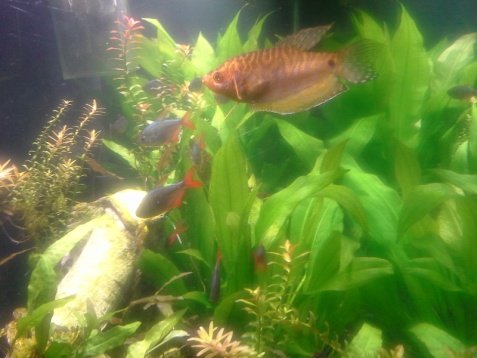Old tank syndrone isn't a tank that hasn't been maintained or properly stocked. Old Tank Syndrome is a condition in which the aquarium environment has degraded over time, specifically the water chemistry. Actually there are generally few visible indications of the significant changes that have occurred in the water parameters. Water tests will show a different picture. Nitrates and phosphates will be significantly increased. The PH, GH (general hardness), and KH (carbonate hardness) will be quite different than that of the water supply. Generally the PH will become more and more acidic over time.
Even in low or medium light tanks not utilizing ferts or liquid carbon/CO2 need periodic testing. Nitrates and phosphates can creep up even when doing large WC's due to high organic load in substrate, dirty filters, foods containing large amounts of phosphates which some do, and alot more factors that play into it. Testing at least once a month in a low/medium tech tank is a very good idea. Fish and plants can seemingly look fine when in fact your water chemistry is changing. You won't know if your water chemistry is changing if you never test it and just assume its fine or hasn't changed just because your fish and plants look okay.

